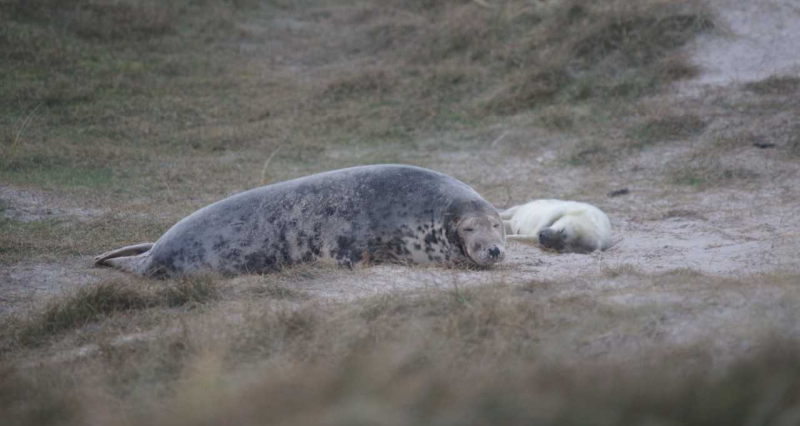
| Project data | |
|---|---|
| Project leader: | Prof. Prof. h. c. Dr. Ursula Siebert |
| Scientific staff: | Dr. Anita Gilles, Dr. Luca Schick, Dr. Kristina Lehnert |
| Project term: | July 2024 until June 2028 |
| Sponsorship: | BfN |

Project description
As top predators, marine mammals play a crucial role in the ecosystem, as they regulate and maintain marine food webs, promote the biodiversity of the marine environment and contribute to the overall maintenance of the ecological balance. The protection of their habitats and the conservation of the biodiversity of marine mammals is of great importance and can contribute to the long-term health of the entire marine ecosystem.
Against the background of increasing or shifting populations of marine mammals, lower life expectancy and the increase in anthropogenic activities, threats and conflicts caused by stressors are also increasing, including fishing (bycatch, entanglement, overfishing, habitat degradation), shipping traffic (noise, collisions, pollution), offshore wind energy projects (noise, habitat loss, increasing shipping traffic), raw material extraction, sand and gravel mining and tourism.
Scientifically robust concepts and high-quality data are required to assess the status in order to adopt measures that will subsequently lead to a good conservation status of the respective populations of marine mammal species. To ensure that this data is available as comprehensively, comparably and are-wide as possible regional coordination of monitoring and the indicators used for evaluation is essential.
The aim of this research project is to develop recognized indicators based on reliable data in order to reliably assess the status of marine mammals in the North and Baltic Seas. These indicators are to be defined and coordinated at both regional and national level, which is also stipulated by the Marine Strategy Framework Directive (MSFD). Various approaches for assessing the status of biodiversity within the framework of the MSFD are being developed, improved and harmonized at international, regional and national level. The indicators are used nationally, regionally and internationally in marine conservation agreements (relevant for Germany: Oslo-Paris Commission (OSPAR) and Helsinki Commission (HELCOM)) by numerous committees and working groups (e.g. under the International Council for the Exploration of the Sea (ICES)).
The ITAW plays a leading role in these committees, for example as head of the expert groups and in the development of indicators.
In this way, the project is generating evaluation methods, models, basic knowledge that can be used in the long term, and urgently needed knowledge on options for action, which is required for the implementation of political and social objectives, for example under the (MSFD).


Contact person
Stiftung Tierärztliche Hochschule Hannover
Institute for Terrestrial and Aquatic Wildlife Research
Werftstr. 6
25761 Büsum
Dr. Anita Gilles
Phone: +49 (0)511-8568177


